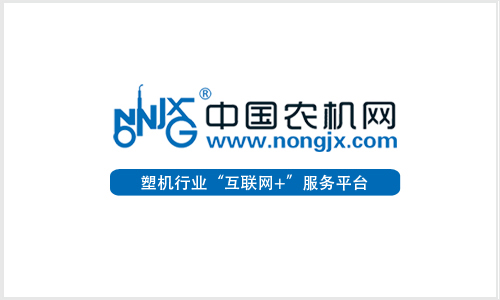Specification
Description: Manufacture Front Air Suspension Shock Absorbers 7L6616039D 7L6616040D Airmatic Air Strut Shocks For Q7 2002-2010
Model: For Q7 Air Suspension Shock Absorbers 7L6616039D 7L6616040D 2002-2010
Position: Front left and right
OEM: 7L6616039D 7L6616040D
Condition: Original rebuild
Material: Rubber Steel Aluminum
Application:For Q7 2002-2010 7L6616039D 7L6616040D
Warranty: 12 months
Delivery: 3-7 days after receiving payment
Gross Weight: 12KG
Manufacture Front Air Suspension Shock Absorbers 7L6616039D 7L6616040D Airmatic Air Strut Shocks For Q7 2002-2010
For Q7 Air Suspension Shock Absorbers 7L6616039D 7L6616040D 2002-2010
OEM:
Rubber Steel Aluminum
Brand New
For Q7 2002-2010 7L6616039D 7L6616040D
3-7 days after receiving payment
Neutral Packing or As Requirement
Canton, China
TS16949
FOB
12 months
10 KG
Air Suspension Shock For Audi,Air Spring Air Shock,Air Suspension For Audi,Air Bag Suspension Shock Hangzhou Hanray Industry Co., Ltd , https://www.airsuspensionride.com
Manufacture Front Air Suspension Shock Absorbers 7L6616039D 7L6616040D Airmatic Air Strut Shocks For Q7 2002-2010
Description :
Model:
Material:
Condition:
Application:
Delivery:
Package:
Place of origin
Certificate:
Trade term:
Warranty:
Gross weight:
Implementing agricultural subsidies to promote farmers' enthusiasm for spring planting
[ China Agricultural Machinery Industry News ] Since the fourth quarter of 2016, due to various factors such as rising prices of raw materials such as coal, tight transportation, low operating rates of enterprises, and the abolition of preferential policies in the industry, the prices of chemical fertilizers have risen remarkably, while the prices of agricultural products have stabilized. Down, spring ploughing is imminent, under this double squeeze, farmers' enthusiasm for planting will be seriously affected.
Implementing agricultural subsidies to promote farmers' enthusiasm for spring planting
Market supply of sufficient fertilizer prices rose significantly
According to the statistics of China Nitrogen Fertilizer Industry Association, China Phosphate and Compound Fertilizer Industry Association, China Potash (Ferty) Fertilizer Industry Association and China Agricultural Resources Circulation Association, it is estimated that the supply of nitrogen fertilizer, phosphate fertilizer and potash fertilizer will be 30 million tons and 8.2 million yuan respectively during spring ploughing this year. Tons, 9.8 million tons, and the demand is 30 million tons, 6.5 million tons, 7 million tons, respectively, respectively, supply more than 0 million tons, 1.7 million tons, 2.8 million tons, the market supply is sufficient.
According to China Information Network, the average ex-factory price of domestic urea, diammonium phosphate and potassium chloride in December 2016 was 1530 yuan, 2250 yuan and 1920 yuan per ton, respectively, up 2.0%, 11.4% and 2.1% respectively. In January 2017, the average ex-factory price of urea, diammonium phosphate and potassium chloride continued to rise to 1,650 yuan, 2,350 yuan and 1,970 yuan per ton, up 7.8%, 4.4% and 2.6% respectively, of which urea price rose by 31%. At present, the price is basically the same as that in January, but in the later period, considering the impact of railway transportation tension, the price will rise slightly, and local prices may rise sharply in a short period of time.
Export policy adjustment stimulates fertilizer exports
In 2016, affected by the sluggish demand in the international market, China's chemical fertilizer exports decreased significantly. The annual export of chemical fertilizers was 27.63 million tons, down 19.9% ​​year-on-year, and the export value was 6.61 billion US dollars, down 39.1% year-on-year. Among them, the export volume of urea and diammonium phosphate decreased by 35.5% and 15.2% respectively. However, in 2017, the adjustment of fertilizer export tariff policy, nitrogen fertilizer and phosphate fertilizer have all become zero tariffs, which will further promote the export of nitrogen fertilizer and phosphate fertilizer. Although the current supply of spring fertilizers is relatively safe, the export of fertilizers has little impact, but it also needs attention. The future export situation will change, and we will be wary of domestic agricultural production.
Comprehensive subsidies for agricultural materials should be implemented early
Affected by factors such as rising prices of raw materials such as coal and the abolition of preferential policies in the industry, the production costs of fertilizer enterprises have increased significantly, the industry has suffered serious losses, the operating rate of enterprises has remained low, and the production enthusiasm of enterprises has not been high, which will seriously affect the adjustment of fertilizer production capacity structure; Phosphate and potash production is mainly concentrated in the southwest and northwest regions, especially the potash base is located in Qinghai and Xinjiang. Not only is the railway capacity tight, but the railway freight rate is high, which is very unfavorable for the spring-farming fertilizer supply. It is recommended to coordinate the railway capacity in the northwest and southwest regions. Priority is given to ensuring the supply of spring fertilizers.
At present, the prices of agricultural products have generally stabilized and declined, the grain price policy is unclear, and the enthusiasm of farmers has been greatly affected. In addition, the price of fertilizers has risen and the pressure on farmers to grow grain has increased. It is recommended to increase the farmers according to the dynamic adjustment mechanism of comprehensive subsidies for agricultural materials. Comprehensive subsidies are guaranteed and guaranteed to be distributed to farmers as early as possible during the spring ploughing period, thus ensuring the smooth development of agricultural production this year.
Product Description